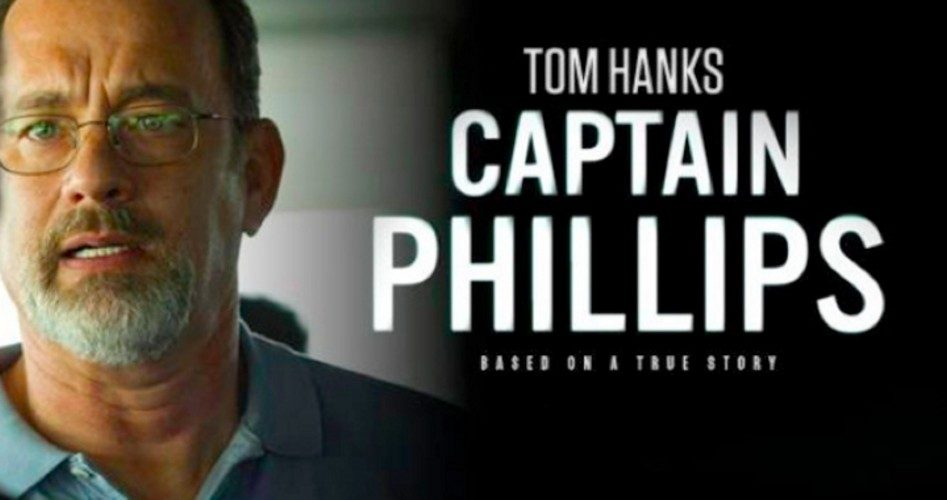
Captain Phillips is a well-made drama about the real-life events that played themselves out on global television back in April of 2009. The audience already knows the outline of what happened before walking into the theater:
Captain Richard Phillips of Underhill, Vermont, finds that his 17,000-ton cargo ship, the Maersk-Alabama out of Norfolk, Virginia, is highjacked by four AK-47-wielding pirates who have sailed out from the Somali coast on a tiny speedboat skiff. The unarmed merchant ship is unable to outrun the speedboat, and the ship’s water cannons cannot prevent the four teenage pirates from boarding.
The captain and two of the crew are taken hostage in the bridge as the crew hides out from the pirates under the deck. But not all goes well for the pirates, as the remaining crew overpowers one of the pirates, seizing his gun and taking him hostage. A trade is arranged — Phillips and his men for the Somali hostage, Abduwali Muse — but Muse and the other three pirates escape aboard a lifeboat with Phillips as a hostage.
After a two-day standoff, on April 12, 2009 Navy SEALs kill three of the pirates, capture Muse, and rescue an unharmed Phillips.
The movie doesn’t really shed any fascinating new details, but the story is tightly directed and focused upon the struggle of Phillips to retain control of his ship and stay alive in captivity. It’s a story worth being told. Tom Hanks puts in a solid performance as Captain Phillips, despite a forced Vermont accent, alongside a spectacular cast. Somali-born Barkhad Abdi is remarkable in his debut acting performance as Musa, repeatedly telling the Irish-American Phillips in broken English, “Irish, don’t worry. Everything going to be okay.”
The movie is based upon Phillips’ book, A Captain’s Duty, released in 2011. Phillips has publicly stated that he liked the movie, but Captain Phillips told Agence France Press after a screening that actually being in captivity was “much worse.”
Perhaps the best lesson to be learned is not in the movie itself. The Maersk-Alabama was attacked four more times by Somali pirates within the next two-and-a-half years after Phillips’ captivity. But after the Phillips incident, the company had armed the ship with a security team that successfully fought off the pirates without casualties every time.
The incident marked the high-water point for Somali piracy, as navies across the world — from Malaysia to South Korea to the EU — have struck back at the pirates. While Musa ended up with a 33-year prison sentence for piracy — the first criminal conviction for that charge in a century — other Somalis have since also been convicted of piracy. Indeed, just days before the release of the film, U.S. Navy SEALs raided a Somali town in a strike against the pirates.
Phillips is actually being sued by some of his former crew members for sailing too close to the Somali coast when there had been an international warning of the danger of pirates.
“We live in a litigious society and everyone’s welcome to their own views,” Phillips told Agence France Press of the lawsuit.



